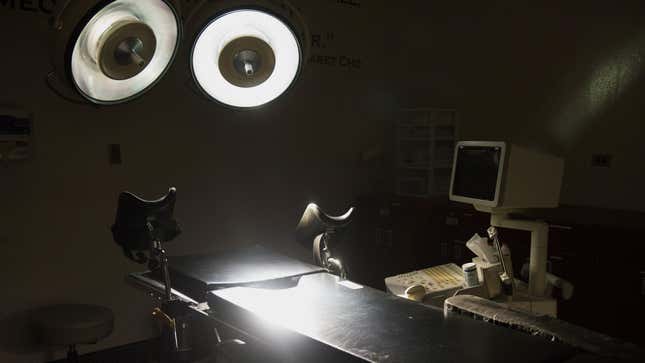Indiana Hospitals Sound Afraid to Give Abortions to Rape Victims
“The exceptions presented in Indiana’s ban are worded...to create additional confusion and uncertainty,” a director at Indiana’s All-Options told Jezebel.
AbortionPolitics

Indiana hospitals aren’t being clear whether they’ll offer abortion services to rape victims, after legislators voted (in August 2022) to add a 10-week rape exception to the state’s ban according to a Wednesday report by the Indiana Capital Chronicle. The outlet contacted Indiana’s eight major hospital systems, and only one (Indiana University Health) implied it would perform post-rape abortions, but declined to offer specific policy details. Three religious hospital systems told the Chronicle outright that they wouldn’t provide “elective” abortion care to rape victims, two declined to comment, and two didn’t respond to the outlet.
Indiana University Health said it “[has] processes to get patients to the right place for care and support through our established network with emergency rooms, EMS, referring physicians, police departments, and others,” but didn’t comment on how rape victims can actually access appointments for care under the ban or the costs.
A spokesperson for the Lutheran Hospital of Indiana told the Chronicle, referring to abortion care for rape victims, “Your questions are better directed to a provider who performs elective abortions. Our hospitals do not.” The Protestant Deaconess Health System told the outlet that its policy “has not changed” and “abortions are not performed outside the context of imminent risk of harm to or death of the mother”—apparently, being forced to carry your rapist’s baby doesn’t constitute “imminent harm.”
-

-

-

-

-

-

-

-

-

-

-

-

-

-

-

-

-

-

-

-

-

-

-

-

-

-

-

-

-

-

-

-

-

-

-

-

-

-

-

-








































